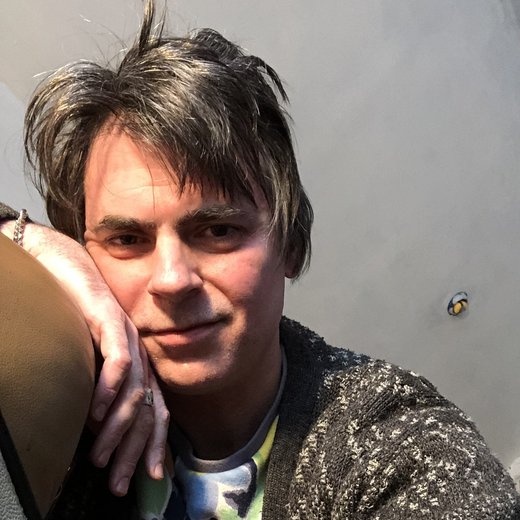Swat Faculty Adriano Shaplin on "Spiritual Experience"
An interview with the playwright on his new immersive theater piece in Philadelphia.

Adriano Shaplin.
Adriano Shaplin is an internationally acclaimed playwright, performer and sound designer who has taught playwriting at Swarthmore since 2006. His plays have been published by Oberon Books, 53rd State Press, Yale School of Drama’s Theater magazine, and Playscripts Inc. He is a four-time recipient of the Scotsman Fringe First Award, and in 2006 he became the first International Playwright-in-Residence with the Royal Shakespeare Company. Shaplin's work has historically been highly theatrical, with a focus on poetic language, hyper-current cultural conversations, and plots derived from Shakespeare; in recent years, he has been experimenting with immersive work for very small audiences. His latest piece, Spiritual Experience, now playing in Philadelphia, takes place in a theater space built just for the show, and is performed for an audience of only two people at a time. Created in collaboration with director Rebecca Wright, the Artistic Director of Philadelphia's beloved immersive theater company Applied Mechanics, the show delivers an experience for all five senses to accompany Shaplin's hypnotic text. Each ticket costs $200, and admits two people. After seeing the show, Swarthmore Publicity and Marketing Coordinator Savannah Reich caught up with Shaplin to ask him some questions about this extraordinarily unique piece of theater.
What can you tell us about what the audience will experience in this piece?
Almost nothing. I can say that it's a private experience. There is only one reservation per performance, and only two seats. So you can watch it alone or with a friend, but there is no other audience. We don't publicize images or provide blurbs, so everyone comes in blind, without knowing what to expect. We let people know there will be no audience participation, and that nothing frightening or confrontational will happen. Our first private theater piece like this was called Perfect Day and we just told people it was about getting exactly what you want, and said nothing more. Secrecy and privacy are an important part of what we're making, and what we're offering. It's one of the things that makes this work special.
What was the original seed or idea that started this project?
It was ten years ago, in the Autumn. There was something in the air that season. Me and several of my closest collaborators kept having these alienating experiences inside of theaters. And the alienation wasn't caused by the performance stage but by the audience around us. Like, the audience ruined our night. And these incidents led us to fantasies about, you know, "What if we could watch a performance alone together, just us, with no one else around?" What would that be like? It got us thinking. Readers can commune with novels all alone, and thanks to technology movies can now be viewed in holy solitude, but not theater. Why not? We wanted to be with our audience like that, one-to-one. It opened up a whole new vocabulary to us.
How collaborative was the creation of this piece? How much of it lives on the page and how much of it was made in the room?
It is intensely collaborative. I write the text only knowing that it will be presented to a private audience. All the other sensory and visual elements were designed and created by the team over months of experimentation, research, and making things together. We all love to surprise each other, and we all pushed each other to extremes, to see how far we could take this. As a result, the piece is full of surprises.
What can you tell us about the experience of performing in your own work?
I've always done it, and it's the only thing that works for me. I can only know if my plays are working if I'm inside them, like feeling them and doing them, and feeling the audience. When I sit outside my plays, on the sidelines, or in the seats, as just a writer, I lose my way.
What are the goals of this piece? What do you hope to achieve?
This experiment with privacy and secrecy and intimacy in performance led us to contemplate the sacred. Spiritual Experience definitely explores the sacred and it even aspires to be sacred itself, at times. We are definitely dreaming of the sacred. But the piece is also profane, and quite smutty at times. We want the experience to be unforgettable, that's for sure. We talked about wanting to create core memories for our audience, with this piece. To achieve this we had to make something that really is unlike any other performance you've ever seen.
Tickets are now on sale to Spiritual Experience in West Philadelphia (but selling fast!). The show runs through March 30th, 2024.


